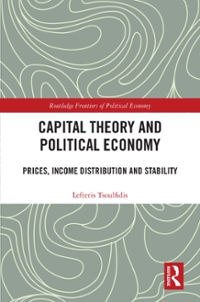Question
Discussion Essential Concept - Supply and Demand: Affordable Housing State law forces most cities in California to set aside a certain amount of residential real
Discussion Essential Concept - Supply and Demand: "Affordable Housing"
State law forces most cities in California to set aside a certain amount of residential real estate / space for something called "affordable" housing.
"Affordable" housing is a government program created to address the fact that the average price of a residential unit in city X is simply too expensive for a certain percentage of folks who might want to live there - it doesn't matter whether we're talking about Bakersfield or Beverly Hills.
Classical liberals argue that if something is too expensive, it's up to the individual, not the state, to remedy this undesired situation by either
a) finding and choosing housing alternatives that are affordable elsewhere or
b) finding and pursuing occupational alternatives that allow you to afford more.
However, statists argue that
a) this is a "social problem" (something that everybody is responsible for solving), not an individual problem (something that the individual is responsible for solving)
b) that the state can and should "solve" this problem through the coercive power of government
This government "solution" ("affordable housing") doesn't seek to make the expensive item less expensive.
Nor does it consider whether the government's own actions are what have caused housing to become expensive to begin with.
Instead, the government simply creates rules which pass the cost of expensive housing on to other people.
They do this with rules which
1) criminalize property owners who charge the market price rather than the government-set price for housing (sometimes called "rent control") - in doing so, government manipulates housing prices
2) force cities to take a certain percentage of homes and apartments (usually 10-20%) 'off the market' - and in doing so, government manipulates housing supply
3) discriminate (treating people differently by law) against folks by giving preferential treatment to some based on income - and in doing so, government manipulates housing demand
We've already talked about the reasons WHY government might do this ("public and private interest") and HOW the "solutions" (new "affordable housing laws" which manipulate prices, manipulate supply, and manipulate demand) might be examples 'cronyism.'
But in this case, let's apply Hazlitt's "Lesson" to the issue. In other words, let's use supply and demand to examine the LONG-TERM consequences and impact on ALL groups that might result from this immediate "solution" for a specific group - and whether it is a "solution" at all.
Using the logic of supply and demand, please identify what we can expect to happen:
1) ...to the demand for "affordable" housing when it is priced artificially low (because of the price ceiling) - does it increase or decrease? (1 point)
2) ...to the probability of a person who is eligible for one of these "affordable" homes, of actually getting one? does it increase or decrease? (1 point)
3) ...to the price of the homes/apartments that are outside of the "affordable" program? does it increase or decrease? (1 point)
4) ...to the number of people who can afford a home outside of the program? does it increase or decrease? (1 point)
5) ...economists would say that instead of creating a new government rule restricting housing prices in order to make housing "affordable," it would be less wasteful and more fair to more people to get rid of an existing government rule - a rule which causes housing to become "unaffordable" to begin with. What rule are they referring to? (1 point)
Step by Step Solution
There are 3 Steps involved in it
Step: 1

Get Instant Access to Expert-Tailored Solutions
See step-by-step solutions with expert insights and AI powered tools for academic success
Step: 2

Step: 3

Ace Your Homework with AI
Get the answers you need in no time with our AI-driven, step-by-step assistance
Get Started


